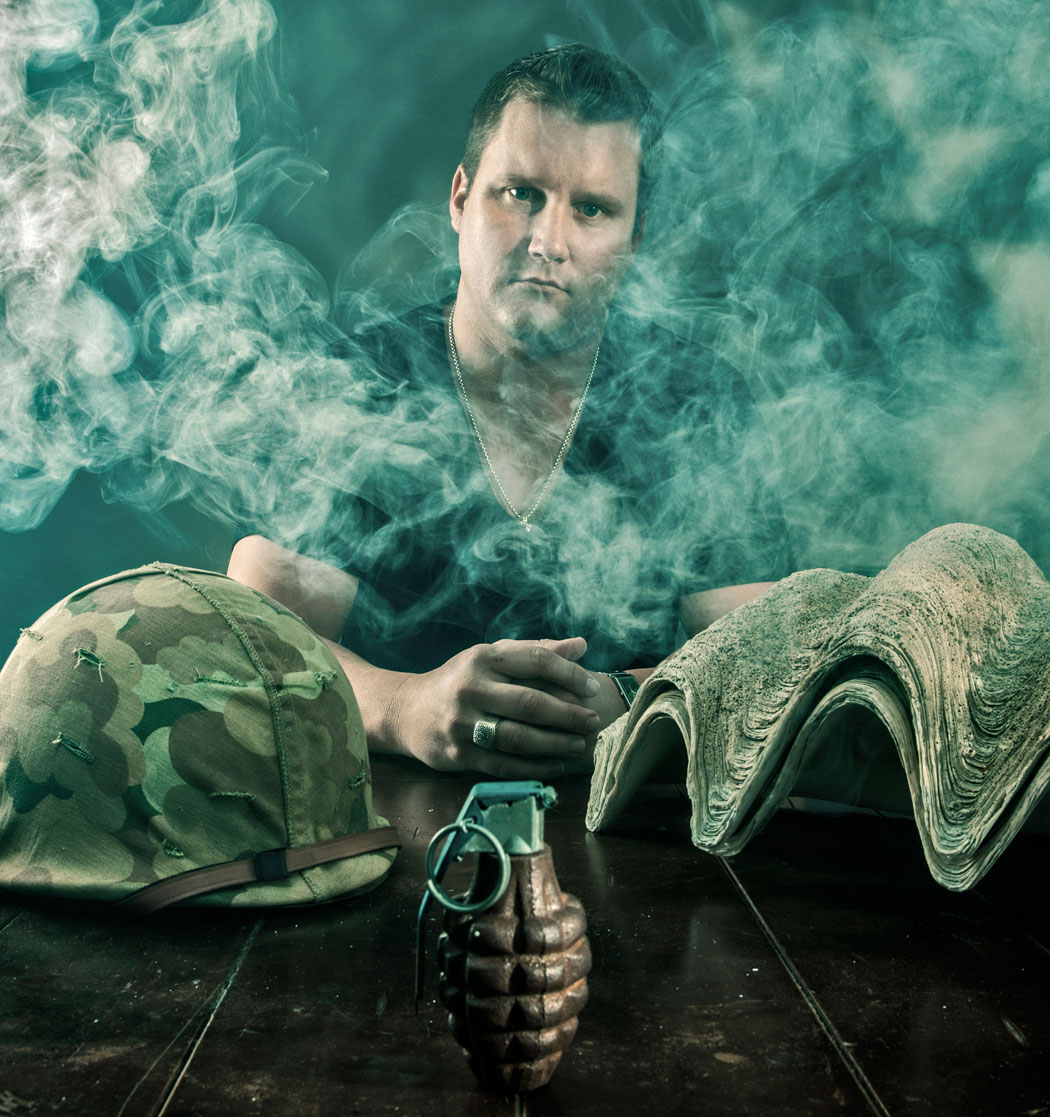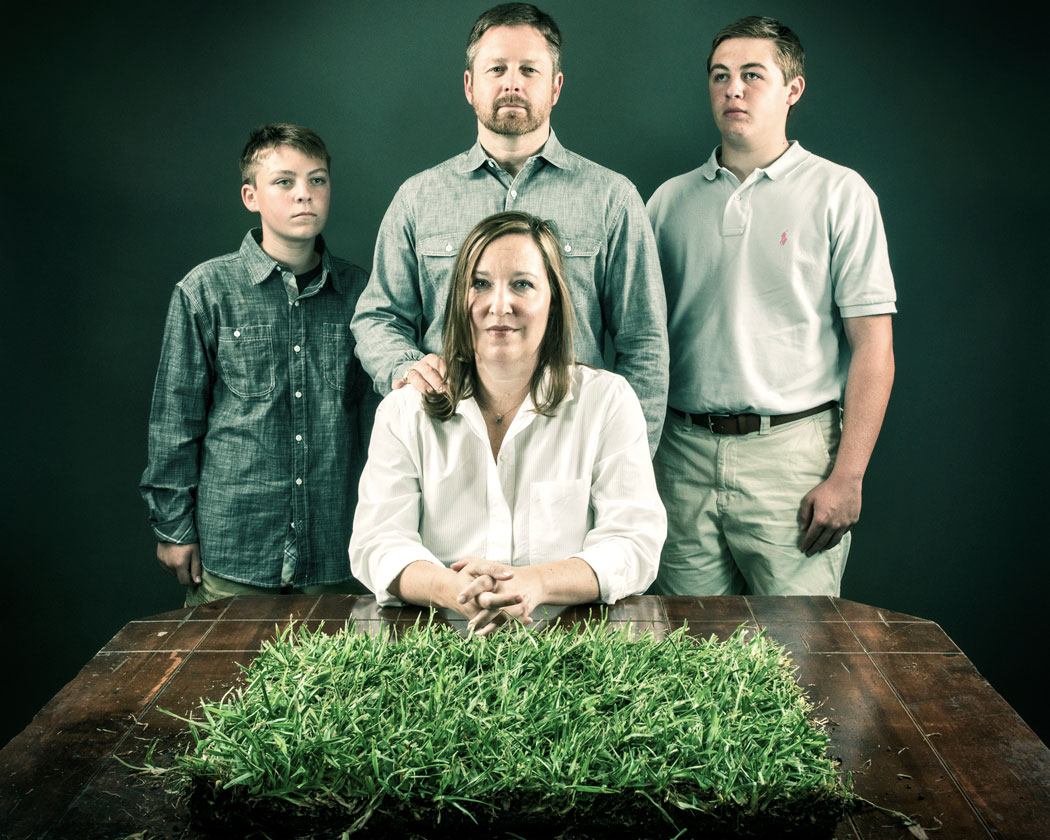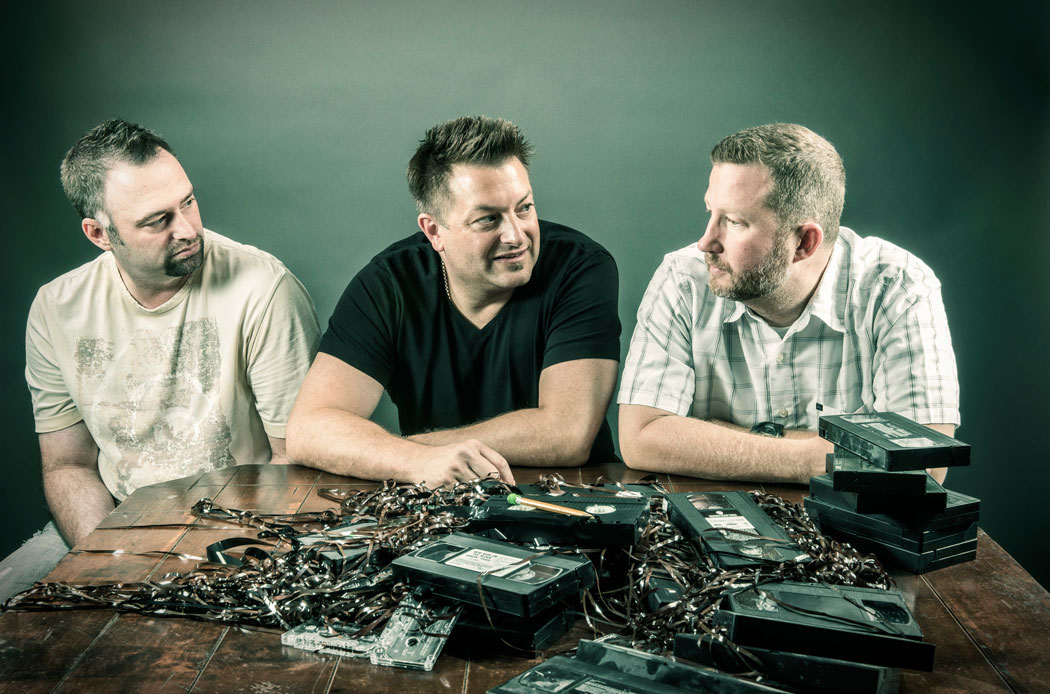Neighborhood residents dish about their 15 minutes of reality TV fame
Running the gamut from voyeuristic trash to societal edification, reality TV shows have amassed over the past 15 years like old newspapers on an episode of “Hoarders.” The grand paradox of the so-called “reality” genre is its supremely contrived, controlled and cut-up content, which — while necessary for palatable programming — deprives us of those stories beneath the surface. We tracked down Lake Highlands people who have spent time on reality TV show sets. They share candidly about their experiences, what they learned and life after the cameras shut off.
Jonathan Libby: He will survive
After talent scouts discovered him in a dim Uptown bar, Jonathan Libby’s rapid rise to fame led to swift betrayal, a fake identity and an amazing vacation. A few years after graduating from Lake Highlands High School — for one brief, shining moment — he starred on America’s longest-running network reality TV show, “Survivor.”
In an alternate universe somewhere, Libby parlayed the gig into a megastar existence.
“My friends like to remind me of it every day,” Libby says. “They imagine themselves being the cast of ‘Entourage.’”
Instead, he turned down work on the soap opera “Guiding Light” as well as requests to return as a “Survivor” contestant.
“‘Survivor’ is a three-month commitment. Not something there’s time for when you have a family,” says Libby, who, a decade later, remains the charismatic showman.
The 33-year-old data solution salesman lives a relatively quiet existence with wife Kimberly and their two children.
He was satisfied with his 15 minutes of fame back in 2004.
That year, “Survivor” — the show that maroons a group of strangers on an island to duke it out for a cool million — had been on the air four years.
Libby was drinking at the Candleroom bar when two guys approached him and asked if he wanted in. He joked that theirs was “a terrible pickup line,” and they replied, “You are exactly what we need.”
He met producers at a Dallas hotel. Show creator Mark Burnett loved him, recalls Libby, who, in the previous year, had been treated for testicular cancer.
“I think it made my storyline all the more appealing,” he says. “[Burnett] was just what you’d think. Very sure of himself. Rather than complimenting me, he congratulated himself. He was like, ‘I am so smart to have found you.’”
Then there was the battery of psych tests.
“I had to spend a day taking all sorts of personality and psychological exams. Within eight hours they know everything about you. They know who to put you around — who you’ll fight with.”
The first part of Libby’s journey to the Pacific island of Palau involved a layover in Honolulu. He and the other contestants were isolated both from each other and the outside world. A knock on his hotel door one night revealed an intern with a stack of DVDs. “It was a crash course on ‘Survivor.’ They gave me seasons one through nine. I made it through six.”
On Palau, Libby and the others lived five days in tents before the game began. They spent those days doing entertainment magazine interviews.
“On the last day, it’s 2 a.m., they wake us up and put us on a banana boat in the water some 6 or 7 miles off the shore. Then Jeff Probst, the host, comes out, and announces that the game has started.”
Libby was eliminated in the first round, which he attributes chiefly to his naiveté. Despite his valiant effort, he says, the other contestants were far savvier at playing the game.
In the first episode, Libby built a shelter that the others used throughout the competition.
“I’m working my butt off and they are plotting to get rid of me,” he recalls.
He wasn’t that surprised when they voted him off the island.
“One guy said I looked like a bully who used to pick on him. Another person was convinced I was a mole, an actor who was planted to stir things up.”
After elimination, Libby trekked the walk of shame to the show’s psychiatrist.
“They want to make sure you are OK, not freaked out.”
Then the show —whose budget, according to a New York Times article, is about $1 million per episode —flew him to Guam for a two-and-a-half month vacation at a luxurious beachside villa.
Not a terrible consolation prize. He also earned $60,000 for his troubles.
As spoiler prevention, “Survivor” secludes its rejected contestants until the end of the season. Under threat of a $10 million fine, Libby was not allowed to speak of the show during his stay in the small coastal town. He was there so long, frequenting neighborhood hangouts, locals began to question his identity.
“So I started making up stuff about who I was.”
His most persistent and flamboyant fabrication was that he was the heir to the Heinz ketchup fortune.
“I told people I was a spoiled brat who spent his time traveling and partying.”
After the show aired, Jonathan enjoyed a brief period as a “D-list celebrity,” he says.
Libby returns to “Survivor” get-togethers from time to time, and he might consider competing on “Survivor” again, once his children are more independent.
There is a popular radio show in Sydney, Australia whose hosts have been trying to land a Jonathan Libby interview for years. “I’ve become sort of famous there for being a pain in the ass. They have interviewed every ‘Survivor’ contestant from every season. Except me.”
He says he has accidentally missed multiple opportunities to connect with the show, “Survivor Oz.” But Libby seems to enjoy his role as the sole “Survivor” holdout. “No it’s not about money. They’ve even offered to fly me there. I will do it eventually. But it is funny. It’s this whole thing now.”
A sweet makeover
Delightful cake balls and an unsightly yard are Robin Ankeny’s two claims to fame.
Not long after founding the Cake Ball Company, Ankeny’s product popped up on one of the Food Network’s Rachael Ray shows. Business boomed, and Robin and husband Jeff, a wine broker, bought an architecturally and historically profound White Rock Hills home. The mid-century home built by famous architect Bud Oglesby required widespread repairs, which the Ankenys tackled with gusto. One exception was the exterior.
“We did not know much about landscaping,” Robin explains, so they did little in the way of yard and curb appeal.
Robin’s mom suggested they submit their “ugly” landscape to the DIY Network reality show “Desperate Landscapes,” in which contractor Jason Cameron and crew rescue the country’s most dilapidated yards.
“I didn’t think our yard was desperate enough,” Robin says. Still, they sent in an application, complete with video of the neighbors “complaining” about the state of the Ankeny’s yard.
One of the show’s requirements, according to the FAQ section of its website, is a critical neighbor or two. “It’s important to include in your application the neighbors who will enjoy teasing you about your lack of landscaping skills.”
Two years later the Ankenys received the call. “Desperate Landscapes” was coming to North Texas. “They said, ‘Are you still desperate?’ and I said, ‘Yes,’” Robin recalls. “All we had done was a little painting. We still needed help.”
What you see on the show is quite authentic, Robin says. They came the day before for minor electrical work. The Ankenys put the whole project in the show’s hands.
“We had no idea what it would look like,” Robin says. “But we were excited. That whole day was like Christmas morning.”
In a span of about 10 hours, Cameron and his team tore down a brick wall that he said, “made the home look like a fortress,” built a composite deck, planted an architectural landscape with funky shapes and a fountain and added whimsical art to the outdoor walls.
The Ankenys were so thrilled that they invited the “Desperate Landscapes” crew to break bread once the job was done.
“They liked that. They said no one had ever invited them to stay for dinner before.”
The one complaint came from the Ankeny children, Luke and Jackson, who expected a little more airtime.
They were in school during the first half of filming, thus appeared only momentarily on the episode. Still, Robin says, “Desperate Landscapes” did an admirable job of editing and producing a relatively realistic reality show. “Plus they mentioned the Cake Ball Company,” she says. “Every time the episode airs, we get more orders.”
Video: Behind the scenes on the Advocate’s cover photo shoot
Gen-Xtras
It was 1992. MTV was barraging viewers with grunge rock and intermittent attempts at socially conscious programming. One such effort was the short-lived “Like We Care,” which examined subjects of supposed interest to teenagers. A February, 1992 LA Times critic wrote that the show was in “a perfect position to counteract the MTV generation’s widely publicized apathy,” adding that it stood a better chance than most current affairs shows of the day.
Brian Cannon, now approaching 40, remembers recording his slice of the show at Lake Highlands North Park alongside a clique of Lake Highlands High School (and one Hillcrest High School) classmates including Josh Lawson, Jason Eskew (pictured), Jason Saba, Dusti Morris and Michelle Frustere. Specific memories about the program are sparse, a deficit Cannon owes to his former-stepsister. “My parents recorded all the episodes on VHS, then she went and recorded ‘90210’ over all of them,” he says feigning outrage.
A friend of a friend was an MTV producer, Cannon says, which is how they landed the gig. MTV sent videographers and producers to high schools worldwide to interview students about music, trends, politics and social issues such as teen pregnancy, binge drinking and gun violence. Filming all of the shows’ two seasons lasted just one afternoon. In a typical episode, the host (who happens to be a member of the “90210” cast) tosses topics to teens. A rapid-fire montage of their previously recorded responses follows. The Lake Highlands students were featured heavily on some episodes and altogether absent from others, Cannon says.
Jason Eskew says the experience taught him a lesson about watching your words, which can be twisted and used against you. For example, the producers asked him a question about feminism, he says, so he recounted a derogatory joke about women that had been going around, followed by an explaination of why he thought the joke was all wrong.
“The only part they used was me telling the joke,” he says. Later on, a girl came up to me and said, ‘You’re that jerk that was on MTV!’ When everything you say is being recorded — and that’s how it is all the time for kids these days —you have to be careful.”
It was all pretty low-key, Cannon, Eskew and Lawson recall.
“There were no makeup artists,” says Cannon. “We wore our own clothes. There was a lot of rayon worn in those years. It was basically a couple cameras and a producer off camera asking us the questions … for some reason I most clearly remember the one about pick-up lines.” Ah yes, a subject approved by the LA Times critic: “The show is at its tongue-in-cheek best hashing out every permutation of that eternal dilemma: how to deal with the opposite sex.”
No one from the group went on to TV careers, though Eschew tried out for “Fear Factor.” Cannon still lives in the Dallas area with his wife and their five children. He sometimes wishes today’s technology would have been around in the ‘90s.
“All of the shows would have lived forever on YouTube and it wouldn’t matter that my stepsister erased them.”
See more Lake Highlands reality star stories here








